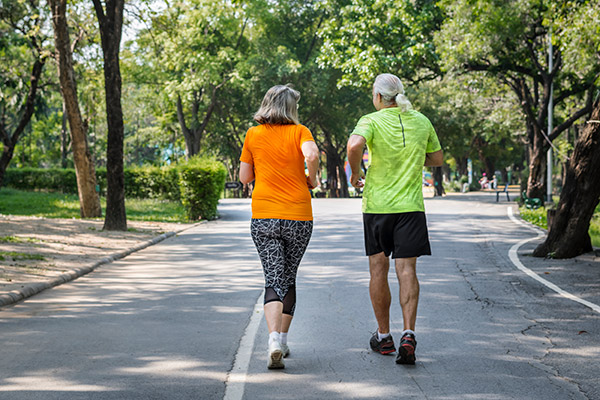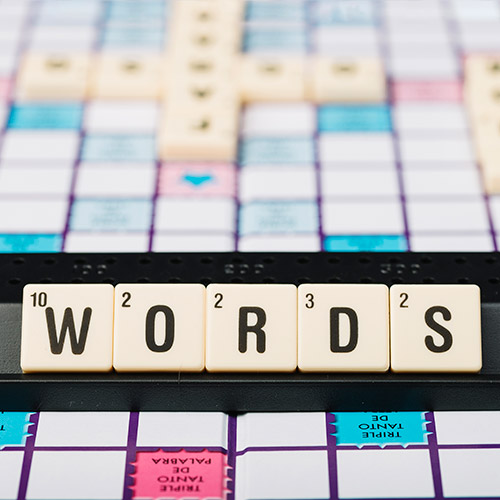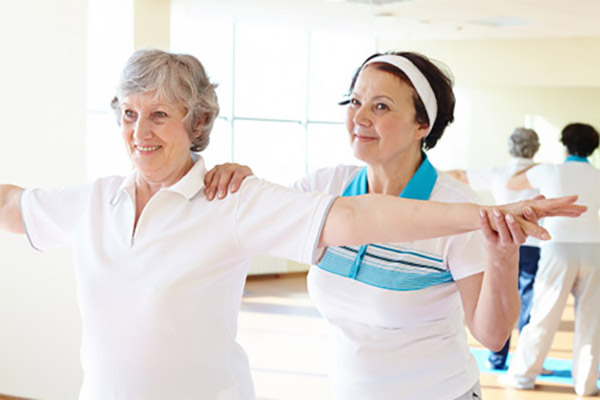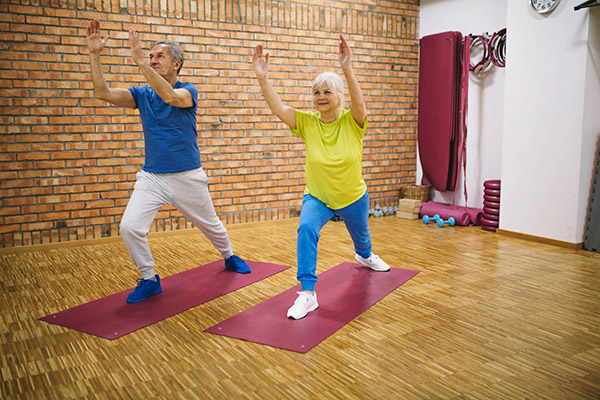How Physical Activity Helps Prevent Cognitive Decline In The Elderly
Cognitive decline is the stage where people have problems with memory, language, thinking and judgement, with more serious decline seen in dementia patients. There are various possible causes in older adults which lead to cognitive impairment such as the side effects of medication, metabolic or endocrine diseases, with delirium due to underlying illness, depression and Alzheimer’s dementia being most common. Engaging in physical exercise can help develop motivation and self-assurance whilst improving body strength and balance to prevent falls. It also has a direct effect on brain function.
The hippocampus is a small organ located within the brain that plays an important role in the limbic system, a set of complex structures that affects hormone release and the regulation of body temperature in addition to the formation of new memories, learning and processing emotions.
Memory, like muscle strength, requires you to use it or lose it! The more you work out your body the better your brain functions to process and remember information. This blog should motivate adults of all ages, especially elderly people, to start exercising and it is not hard to get started. If you, or a relative, have physical limitations the experienced physiotherapists at Prohealth Asia can assess these deficits and develop a customised programme which addresses individual requirements.

INCLUDE PHYSICAL ACTIVITY IN DAILY LIFE
- Physical activities increase blood flow to your whole body so exercise helps you to process and remember information keeping your memory sharp.
- While it is recommended to do 150 minutes per week of moderate aerobic activity like jogging obviously any activity needs to be tailored to the capabilities of each person particularly the elderly who may have other medical conditions to take into consideration. However, even 10 minutes of walking each day can make a difference!
- Therapeutic exercises can help improve impaired blood flow to the brain known as vascular dementia
- Exercises in a group setting can contribute to feeling of reassurance plus promote active social involvement, which addresses depression and the apathy experienced by many elderly people and those with dementia.
LIVE A HEALTHY LIFESTYLE

- A healthy lifestyle leads to a better life with research indicating that abstinence from alcohol reverses hippocampal damage within 6 to 12 months
- Exercise stimulates the production of new brain cells known as neurogenesis, and gradually rebuilds the hippocampus structure in depressed people
- Getting adequate sleep is a fundamental but critical part of memory function
- Regular exercise like swimming, walking, group classes, yoga or any stimulating activity can improve brain function
MENTAL EXERCISES FOR A BETTER BRAIN

These activities should initially be familiar and kept easy to remember and repeat.
- Memorising a poem or singing a song; listen to music
- Memorising numbers – during exercises memorising movement of limbs with counts and repetition help in improving body position and co-ordinated movement. As muscle memory stays within body so by repeating the exercises every day it helps in recalling memory.
- Use exercise tools like coloured therabands, medicine ball, weight cuffs, Swiss ball to remember the colour and amount of weight used for the exercise
- Cognitive functions such as task switching, selective attention and working memory during exercise and activities of daily living
- Create word pictures/play cards and board games; do crosswords and Sudoku
- Draw a map from memory; do crafts/painting
- However physical exercises may be one of the most beneficial and cost effective therapies widely available to everyone to improve memory performance.
PHYSICAL EXERCISES FOR A BETTER BRAIN
Does it take a long time to clear out the sleep fog when you wake up? If so, try exercising in morning before you start your day ---- it will make a big difference. And if you are that coach potato looking to start physical activity then stay motivated by choosing something that really interests you:
- Aerobic activities such as walking, cycling, swimming and aquarobics not only stop the hippocampus from shrinking but may even help it grow
- Golf is great social and physical activity where research has proven its link to better cognitive function and a longer life span
- Strength training exercises with weights and resistance bands helps improve memory faster
- Try low impact cardio and strength training exercises like aerobics and Pilates mat classes, or dance classes for something different!
- Exercises using a BOSU ball, balance beams or wobble board change the sense of balance so challenge you to focus on improving motor skills and the circuitry within your brain. Good balance in the elderly is crucial in preventing falls because hip fractures are a significant cause of mental and physical deterioration post-surgery

- Rowing such as paddling a canoe or using a rowing machine are great for cognitive engagement. Any exercise challenging your centre of gravity, largely governed by the cerebellar part of the brain, will have overflow into better muscle control, co-ordination, emotional control and cognitive processing
- Activities such as badminton or tennis which require hand eye-coordination or complex motor skills are particularly beneficial for brain building.
- Yoga helps decrease stress, anxiety and pain while increasing the grey matter of the brain where the bulk of neurons are located. It also maintains or regains functional motor control, problem solving, spontaneity, memory, language, initiation and judgement. Breathing exercises and meditation help to focus and relax the body and mind which is good for the brain.

- Don’t forget household activities count as well such as floor mopping, raking leaves and anything that gets your heart pumping.
- Physical activities increases the production of serotonin which is linked to improved mood, reduced anxiety and better pain tolerance
- Exercises such as cycling in park or yoga in an open environment activates the visual working memory and helps relax the mind
- If you don’t have the discipline to exercise alone then it on your own then join a club or workout with friends. Tracking your progress encourages you to reach a goal.
- Exercises breaks can help you get past mental fatigue and afternoon slumps especially in the office. Reboot your brain with a short burst of activity or stretching.
PROHEALTH ASIA HOME PHYSIOTHERAPY SERVICE FOR THE ELDERLY
So after reading this blog you should agree that exercise is good for quality of life, and for many elderly people and their families this quality of life question is a major issue. Older people with mental decline are at risk from injuries and hospitalization all of which make circumstances worse and take a further toll on the helpers. Conversely, there are elderly with physical problems who risk mental decline due to their inability to be active and continually engaged in family life.
Prohealth Asia offers a home physiotherapy service for those people unable to attend our clinic. Treatment and exercise programmes are aimed at improving patient safety, pain management, functional activities and cognitive behaviour.
People photo created by freepik - www.freepik.com
BOOK AN APPOINTMENT TODAY
Come to our Physiotherapy clinic in Niti Bagh, Delhi for a chat with one of our expert physiotherapist to plan the right Physiotherapy treatment for you to get rid of pain in no time.
 Book an Appointment
Book an Appointment